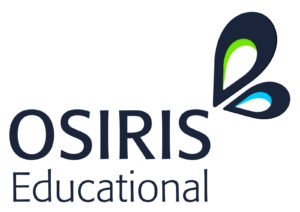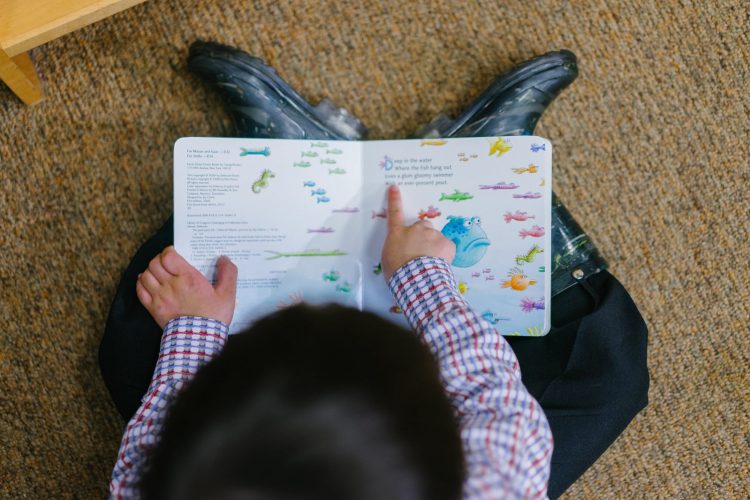As education slowly grinds a STEM growth path, we look at five areas on the horizon offering deeper insights into the development of human potential.
· The power of the collective
· Identity
· Disrupting expectations
· Discovering an internal evidence base
· Esteeming expertise
And ask what can we expect and when?
The power of the collective
When Professor John Hattie announced a new number 1 in the effect size race, it was not a new phenomenon but rather one lost in the avalanche of research. And when it was revisited, its astonishing power stands up to scrutiny.
People acting together, in what Dr Jenni Donohoo now calls “Collective efficacy”, can achieve an average impact of four times the average of all impacts.
However, Collective Efficacy should not be mistaken for collaboration. The evidence for collaboration is scant indeed. No study has so far provided any evidence that collaboration produces significant gains. Collective Efficacy demands several underpinning conditions including;
· Shared sense of goal
· Clarity on measurement
· Specificity on action
· Social sensitivity
The challenge in many countries is that such conditions are not easy. Prevailing culture, political cycles and/or external performance pressures are based around competition. In such a breeding ground relational trust is replaced with anxiety.
Very excitingly learner collective efficacy lies on the horizon above. Imagine if all learners in your class were given the same score at the end of the year as the lowest score. It’s just beginning to change the way we think about learning.
For more, read; Jenni Donohoo, Collective Efficacy
Identity
We are only just starting to understand the implications of this emerging term. As equality develops into equity so identity will find its rightful ground.
We know language is dualistic, producing a negative for every positive. Hence judgement is so rife, even when unintended and unsolicited. To realise a more balanced and sustainable human potentiality we need to move beyond.
In eras gone by death was a common experience, amongst young siblings, through infectious disease, as an outcome of war. We were all affected. Nowadays, particularly in the West, we try to sweep it under the carpet.
Harari, In Homo Deus, says that we as a species have evolved beyond survival needs our new grasp is for god like status the first of the new superpowers, we seek is immortality. Investment in health is a testament. Yet our first breath in, is our first breath of life and our first breath out, is a our first breath of death.
As a result, we suffer attachment to the three great burdens; greed, anger and sorrow.
These attachments pinch our identity in such a way that what we strive for that which becomes the very source of our anxiety. What we perceive leads to pleasure, affords only instant gratification, followed by slump and misery. We seek false idols and end up with addictions.
We have been given senses to drive intelligence and allow us to survive. And survive we have. But at what cost? With 7 billion people on the planet, it is the rest of the species that are in danger. And with their decline and the consequential lack of bio-diversity we risk everything we have evolved to become.
By esteeming sharp intelligence, we grasp at the bonds of accumulation. We think what we ‘own’ and ‘earn’ is what defines us. Yet, it is this very attachment that may also be producing our misery.
By clinging to current constructs of identity and attachment we risk everything.
Identity demands a different start. one that places our relationship to everything, including our own death, at its heart. As we realise that we are all the same, come from the same and go to the same the implications for protocols and structures are profound.
The challenge of identity is that you must develop a tacit understanding through experience and not by using intelligence and Cognition. The latter will only result in mimicry which when put to the test will fail. We must find time and space to allow for this experience to grow and develop.
The rewards in terms of depth of life, well-being, relationships and social sensitivity are profound. Mindfulness touches the surface.
For more read; the Zen teaching of Huang Po and watch; Sahdhguru on YouTube.
Disrupting expectations
Only a decade ago aspirations were thought of as the social saviour. Sadly, the theory didn’t expand into tangible evidence. Even if we could occasionally find correlation, like self-esteem, the underlying driver was far from clear.
The transfer became a shift to flightpaths and teacher expectations. These were loaded onto the individual. This proved much more promising. Formative assessment and feedback became the new technologies and they do have provable merit.
More precise tools have been discovered. It is not the giver that holds the keys but the receiver. And the relationship is much more sophisticated and inter dependent than to that which we gave credit.
Hattie and Timperly proved that the most important element in the feedback process is the willingness of the receiver to take the feedback and act upon it. That involves high relational trust, understanding the stage of the learning process and being timely.
And even more important is the expectations the learner has of themselves. All those years ago when Henry Ford said, ‘if you think you can or you think you can’t then you are right’. Growth Mindsets have unwittingly helped us understand that a growth mindset is the most fixed mindset you can have. A growth mindset is at its most useful as a mental switch at the moment of maximum adversity.
What we as teachers need to learn a lot more about is how to disrupt the expectations pupils have of themselves and not merely give them a mimicked mantra that when tested falls short.
For more read; Hattie and Timperly and Hattie and Clarke
Discovering an internal evidence base
Both Wiliam and Hattie warned of the dangers of teachers as researchers. Now it seems that even the researchers are a danger to themselves and the system as a whole.
Everyone looks for quick wins and irrefutable truth that they were right and yet 12 out of 13 research papers fall into the filed without glory category. Of those triumphs less than 2% are retested. The gold standard of RCTs proves unsuitable in less than half the propositions in health, who knows how many more in education. Sadly, education remains far from a science. What works in the lab struggles in complex and dynamic situations. This doesn’t mean that advances aren’t to be sought, just recognised as less exact and transferable than we would like to think they are.
And even with all this research we are still left with ‘messy’ school situations where inconsistencies abound, variables prove mountainous and implementation is little more than a fledgling science.
So, what we are really left with is high probability notions. The vast majority turns out to be common sense. Practice testing produces better test scores. The more practice you do the better you get. How we get the learners to keep sitting the tests is not so clear. Discipline works with those who respond to fear. Those less compliant can easily become excluded, first by absenting themselves from school and later from society as a whole, existing in the margins and, for a growing band, the doorways.
What does seem to work is building your own internal evidence base. It requires discipline, enlightened design and a vision for the longer term. For schools who engage the learning is very promising…. and mistakes are not forgotten and endlessly repeated.
For more engage with; Visible Learning
Esteeming expertise
It is always fascinating to read school prospectuses and websites. Even more interesting to hear teachers talk about the success of their learners. The former big up the buildings and facilities, opportunities and potential. The latter esteem the efforts of the children, the hard work they have put in.
Neither the schools nor the teachers seem willing to smell the roses. They fail to esteem the quality of teaching and teachers that has achieved beyond expectations.
And because of that we have failed to develop a language of teacher development. We still use terms such as CPD and performance management. These act as catchalls harking to generalistic traits.
In some schools this is changing. Come to our school because we have the best teaching they declare, and too right, it is teachers that change lives, spot things in learners that they may not have spotted in themselves, inspired, delivered passion, built relationships, been role models, scaffolded when the going got tough, opened vistas, disrupted expectations, driven those extra miles on a Saturday, been unrelenting, said a timely ‘no’.
How far can we esteem the teachers we love to see?
For more, read; The Role of the Teacher in unpopular essays by Bertrand Russell
Osiris Educational is the UK’s leading independent training provider for teachers.We work at the forefront of innovation in education providing pioneering, challenging and effective training solutions in teaching. We use the best and most renowned trainers to help teachers improve their ways of thinking and approaches to teaching.
To find out more about us, please contact:
info@osiriseducational.co.uk or call 01790 755 787



